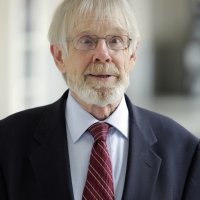The Power of Weak States in International Politics: Eastern Europe in the 20th Century
"Weak states can be both policy takers and, occasionally policy makers," argues Laszlo Borhi in a presentation examining weak states in East Central Europe in the 20th century. Focusing on several case studies, Borhi looks at three periods: the aftermath of World War I and World War II and the post-1989 era.
Borhi maintains that the role of weak states in the international system is ambiguous, and their role in shaping international politics is underappreciated. They are often pawns in the international system. The coup in Yugoslavia in 1941 disrupted Hitler`s timetable to attack the USSR, the U.S. provoked Hitler to invade Hungary to spread the Germans thin on the western front, Churchill horse traded the Balkan states and Hungary into the Soviet zone in 1944. East Germany forced Moscow to construct the Berlin wall and Cuba engineered a nuclear standoff between the two superpowers.
Contrary to the position of realists such as Kenneth Waltz, Borhi argues that fluctuations in the distribution of power isn`t the only agency making change in the international system. In the 20th century profound domestic changes in weak powers led to major changes in the international regime. Weakness and power in international politics may not always be determined by military and economic factors alone.
Laszlo Borhi is a Fulbright Visiting Professor at Indiana University Bloomington and a Senior Research Fellow at the Institute of History of the Hungarian Academy of Sciences. He is currently working on a monograph titled "Dealing with Dictatorship: The U.S. and Hungary in an East European Context, 1942-1989," and is a contributing editor to a collaborative volume on Soviet occupation policies in Austria, Hungary and Romania.
The discussion will be moderated by A. Ross Johnson, research fellow at the Hoover Institution, adviser to the Radio Free Europe/Radio Liberty (RFE/RL) Archive Project at Hoover, and senior scholar at the Woodrow Wilson International Center for Scholars.
Speakers

Senior Adviser, Radio Free Europe/Radio Liberty; former Director, Radio Free Europe
Hosted By

Global Europe Program
The Global Europe Program is focused on Europe’s capabilities, and how it engages on critical global issues. We investigate European approaches to critical global issues. We examine Europe’s relations with Russia and Eurasia, China and the Indo-Pacific, the Middle East and Africa. Our initiatives include “Ukraine in Europe”—an examination of what it will take to make Ukraine’s European future a reality. But we also examine the role of NATO, the European Union and the OSCE, Europe’s energy security, transatlantic trade disputes, and challenges to democracy. The Global Europe Program’s staff, scholars-in-residence, and Global Fellows participate in seminars, policy study groups, and international conferences to provide analytical recommendations to policy makers and the media. Read more


History and Public Policy Program
A leader in making key foreign policy records accessible and fostering informed scholarship, analysis, and discussion on international affairs, past and present. Read more
